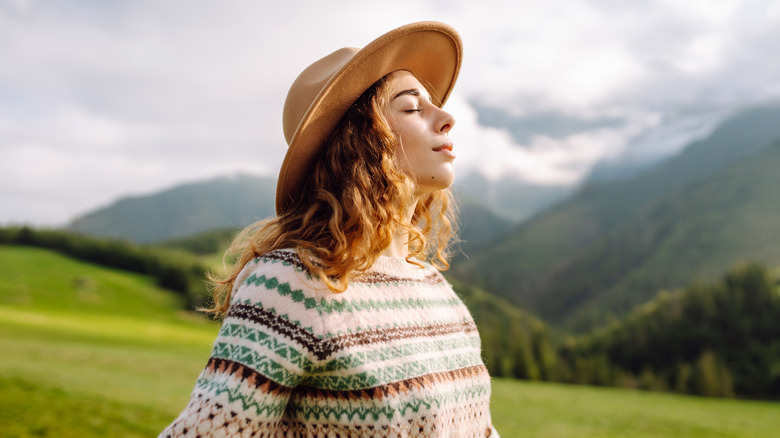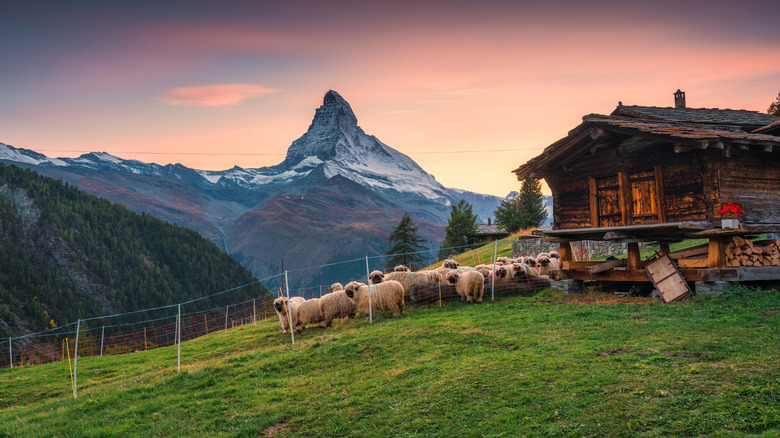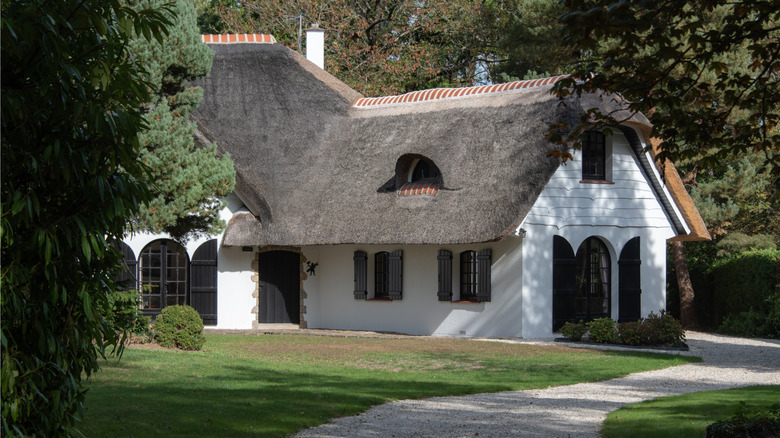The Immersive Lodging Option Rick Steves Enjoys For A Relaxing European Getaway
First trips to Europe tend to follow a standard pattern: We fly to a major capital, we see famous sights, and we stay in downtown hotels. Europe is easy to experience this way; a backpacker with a Eurail Pass can zip from one famous city to another, crashing in hostels and wandering cobbled streets on foot. Student groups and honeymooners rarely struggle to find a stately old hotel, and cities like Paris and Rome are soaked in historic landmarks and fascinating museums. The moment spring breakers and exchange students step out of their rented apartments, they're swept up in a typhoon of bars and dance clubs. You could fill out a bingo sheet with standard objectives: Big Ben, the Mona Lisa, Brunelleschi's Dome.
As we mature, though, and our bank account hopefully grows, we may yearn for a different kind of European stay. Visiting these countries may feel less like a breakneck scavenger hunt and more like a peaceful escape, a chance to simply exist in a different environment. This "immersive" style of vacation is a great response to overtourism, if you can afford it. One economical lodging option can help here: the rural cottage.
Tour guide Rick Garman explores this "slow travel" approach in a blog post on the Rick Steves website. "More and more Americans are learning about agriturismi in Italy, gîtes in France, and Ferienwohnungen in Germany," writes Garman. "These apartment flats or country villas come with kitchens and no daily maid service. They rent only by the week at a great price. This is an especially good value for families and traveling groups who want to just stay put as temporary locals or use their flat as a base for exploring by rental car."
Benefits of staying in a country cottage
The real soul of Europe is in its countryside. Agriculture in France and Italy dates back to the Neolithic Period, about 7,000 years ago, and different regions have raised certain crops and livestock for ages. When you stay in a village, you may observe some of the same daily routines that locals have practiced since the Middle Ages. The pace of rural life is slower than in bustling metro areas. In a rural cottage, you can expect fresh air, long days, and few obligations.
"Slow down and enjoy," writes Garman. "Even take a day off, or as Rick says, a vacation from your vacation. One of the joys of staying for at least a week in one location is you can develop a true dolce far niente ('sweetness of doing nothing') attitude. If the rain is pattering outside, grab a book from the in-house library and curl up on the sofa." Being social is less about beaches and cocktails and more about local community. "An early morning walk as the sun rises will probably find you in the company of the local farmer as he trims his grape vines, or the neighboring Italian grandmother who is lovingly tending her small garden. Go ahead — interact, even if you don't speak the local language."
Famous travelers have done this for centuries. Author James Baldwin, originally from New York, found a less crowded solace in this little-known village in the French Riviera. Frances Mayes, a poet and novelist who grew up in Georgia, refurbished an entire house in the hills of Italy. Rural escapes can be infectious.
How to find and stay in a European cottage
In many ways, this is the best of times to find a rural cottage or farmhouse: Websites like Airbnb and Vrbo make it easy to search by geography, budget, and type, and you will likely find listings for an entire domicile in Normandy or Bavaria without much trouble. You may encounter social media pages dedicated to long-term rentals on bucolic estates, and as you meet more people in your preferred destination, special agencies and word of mouth may connect you to off-the-radar properties.
These streamlined networks also make bookings more competitive. Regular travelers may reserve the choicest cottages months or years in advance. The Internet can also be deceiving: A flattering photo album and hand-picked endorsements may disguise certain inconveniences, like remote locations, buggy utilities, or unwelcome pests. These rentals may be a bargain in the long run, but few of us want to fly across oceans and spend large sums to endure cold showers and lumpy beds. There are also many hidden dangers of Airbnbs, no matter where they're located.
"Keep in mind these websites are marketing vehicles for the listings," says Garman on the Rick Steves post. "What looks secluded or grand in a photo may actually be next to the local garage. If you have doubts or questions, you can usually resolve them via email." He adds: "More than ever, when you're staying in a weekly rental property, you need to be flexible and independent." Which is, of course, one of the joys of this kind of housing.


